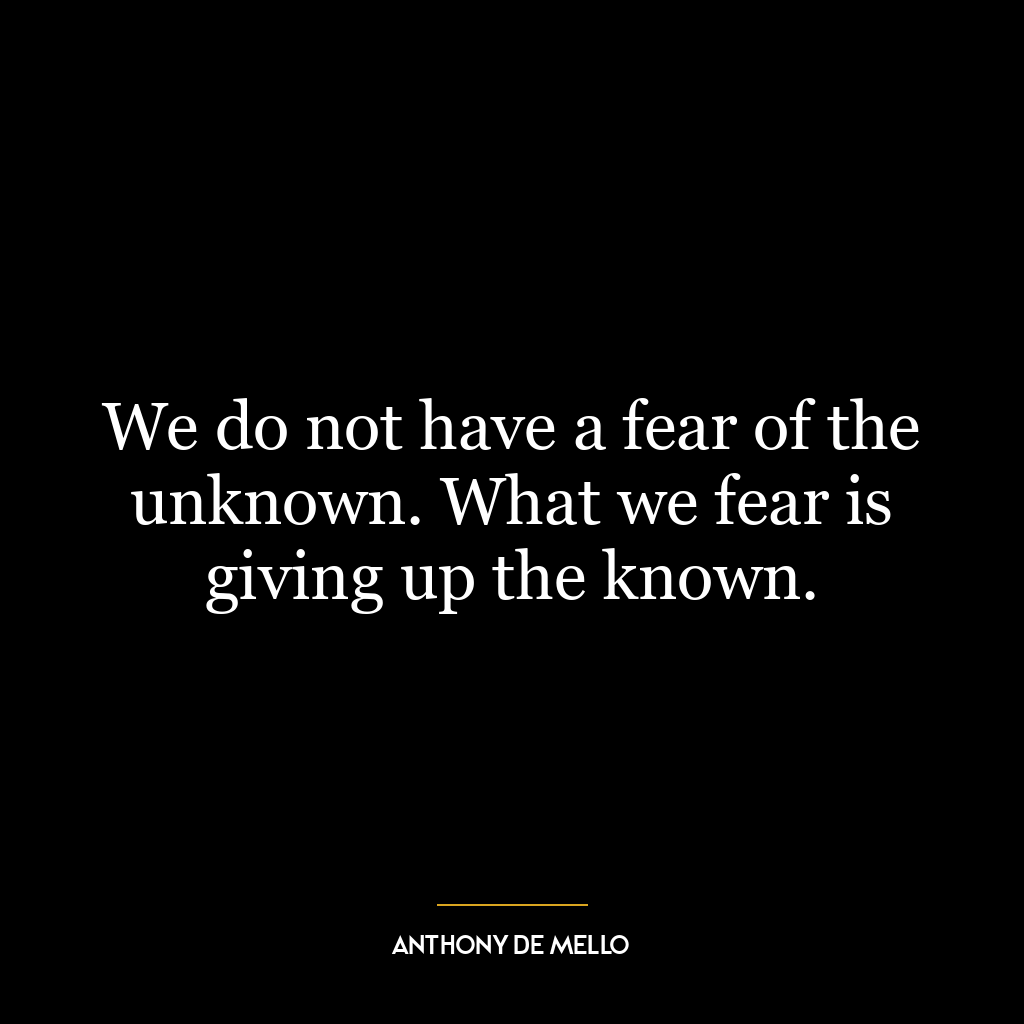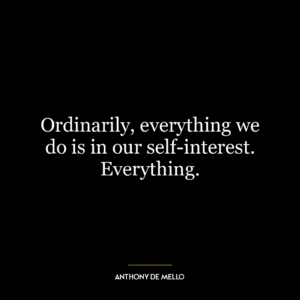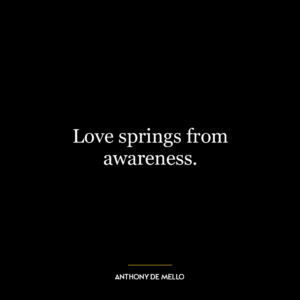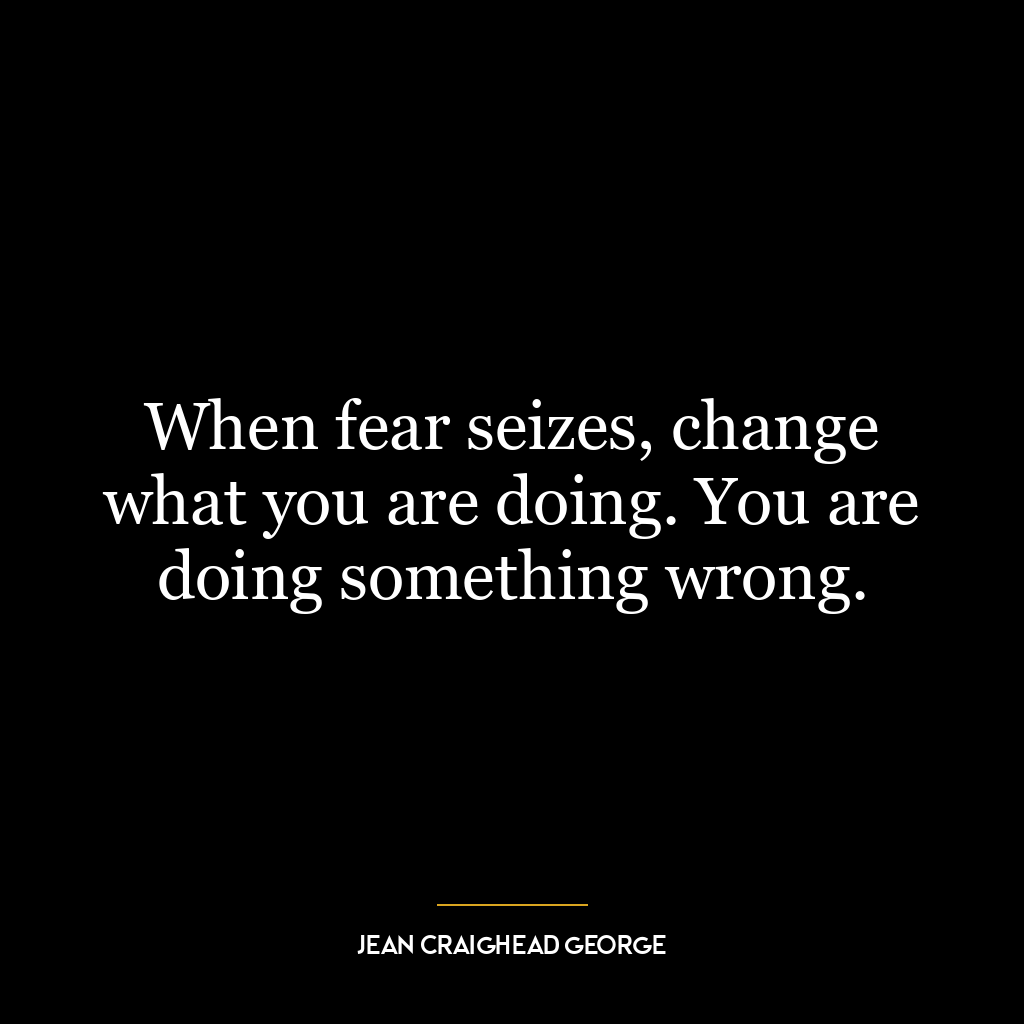We do not have a fear of the unknown. What we fear is giving up the known.
This quote suggests that it’s not the unknown that we fear, but rather the idea of relinquishing what we already know. It’s about our inherent resistance to change and our attachment to the familiar. We often prefer the comfort of the known, even if it’s not ideal, over the uncertainty of the unknown. This is because stepping into the unknown requires us to let go of our preconceived notions and established patterns, which can be unsettling.
On a deeper level, this quote can be interpreted as a reflection of our psychological and emotional attachment to our beliefs, habits, and patterns. We hold on to them because they give us a sense of identity and security. However, this attachment can sometimes hinder our growth and prevent us from exploring new possibilities and perspectives.
In today’s rapidly changing world, this quote is particularly relevant. The pace of technological advancement and cultural shift requires us to constantly adapt and embrace the unknown. Those who cling to the known and resist change may find themselves left behind. On the other hand, those who are willing to let go of the known and venture into the unknown are more likely to innovate, adapt and thrive.
In terms of personal development, this quote encourages us to step out of our comfort zones and challenge our existing beliefs and patterns. It suggests that growth and transformation often require us to let go of the familiar and embrace the new and unfamiliar. This could mean trying new experiences, learning new skills, or adopting new ways of thinking. In doing so, we open ourselves to new possibilities and opportunities for growth and transformation.















